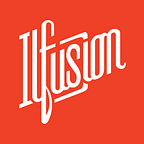Title Links and Link Title Attributes: Are They Important for SEO?
Search engine optimization (SEO) can be divided into two: on-page SEO, which refers to optimizing the content and structure of your website, and off-page SEO, which refers to activities like link building and social media engagement.
These two types of strategies work hand-in-hand to help readers discover your website and to help search engine bots understand your content better.
There are many facets to SEO, but two areas that are often overlooked are the optimization of title links and link title attributes, which are both considered on-page and off-page SEO.
What Are Title Links and Link Title Attributes?
A title link refers to the title of a webpage that you see in search engine results pages (SERPs), to which the link takes readers to the specific webpage. In essence, title links can be considered as anchor texts for your webpage in search results.
Link title attributes, on the other hand, are the HTML tags that provide additional information about a link. They appear in the code of a webpage but are not visible to readers unless they view the source code.
There are two main types of link title attributes: rel=”nofollow” and rel=”dofollow”:
- Rel=”nofollow” attribute tells search engine bots not to follow the link, meaning that no link equity is passed.
- Rel=”dofollow” attribute, on the other hand, tells search engine bots to follow the link and pass link equity. More on link equity in the next section.
How Title Links and Link Title Attributes Affect SEO
The title link and link title attributes are also what search engine bots use to understand the context of a webpage. As such, they have a significant impact on your SEO ranking.
The two affect SEO in many ways, including:
- Usability: A title link that is well-written and describes the page accurately helps users understand what the page is about, even before they click on it. This can help reduce your bounce rate as users are more likely to click on a link that is relevant to their search query.
- Search visibility: The title link is one of the first things that users will see when your webpage appears in search results. A descriptive and keyword-rich title link can help increase your click-through rate (CTR), which is a key ranking factor.
- Link equity: Link title attributes can help pass link equity (ranking power) from one webpage to another. This is especially useful if you are linking to an external website. By using the right link title attribute, you can help improve the SEO of both your website and the linked-to website.
How to Optimize Your Title Links and Link Title Attributes
Optimizing your title links can be a great way to improve your SEO. Here are some tips on how you can do that:
1. Use descriptive and keyword-rich titles
A title that accurately describes the page’s content is more likely to be clicked on by users. Likewise, a title that includes relevant keywords can help improve your CTR.
However, it’s important to be mindful of keyword stuffing. Keyword stuffing refers to the practice of cramming too many keywords into your title, which can result in a lower CTR.
Google also penalizes websites that use keyword stuffing, as it is considered a form of black hat SEO.
2. Keep your title links short and concise
A title link that is too long can be cut off in search results, which can make it less effective. Try to keep your titles under 60 characters.
On a related note, you must strike a balance between being descriptive and concise.
It’s best practice to void vague titles such as “Home”; instead, add more information about what your webpage is about for usability purposes. It also gives search engine bots more contextual data to work on when they’re ranking your content.
But as we mentioned, be mindful of the length so that it won’t be truncated in SERPs.
3. Use unique title link elements for each of your pages
Using boilerplate text for several or all of your pages — using “best digital marketing agency TX” for your home, services, and about pages — can affect the usability of your site.
It makes it difficult for both readers and search engine bots to delineate your pages from one another.
As mentioned earlier, be as descriptive as you can with your title links and title link attributes to better reflect what your page’s content is about. If you need to add more information, you can reserve this on your page’s meta description.
4. Use link title attributes wisely
If you are linking to an external website, use the rel=”nofollow” attribute to preserve your link equity. On the other hand, if you are linking to an internal page, use the rel=”dofollow” attribute to help pass link equity and improve the SEO of the linked-to page.
However, be sure to double-check each and every link title attribute you have on your content so as not to accidentally impede link equity. A regular content and SEO audit will help you keep things in check.
Are Title Links and Link Title Attributes Important for SEO?
The quick and short answer is yes. While Google did not explicitly announce that it is one of the ranking factors for SEO, they did create a comprehensive guide on how to control how your title links are shown in search results, which speaks volumes about its importance.
Moreover, other SEO factors such as CTR and link equity are influenced by how you optimize your title links and link title attributes, which further cements their importance in SEO.
At the end of the day, it all comes down to creating a great user experience for your website visitors.
If you want to know more about how you can optimize your business website for SEO, head on to our official blog at https://www.ilfusion.com/blog.
